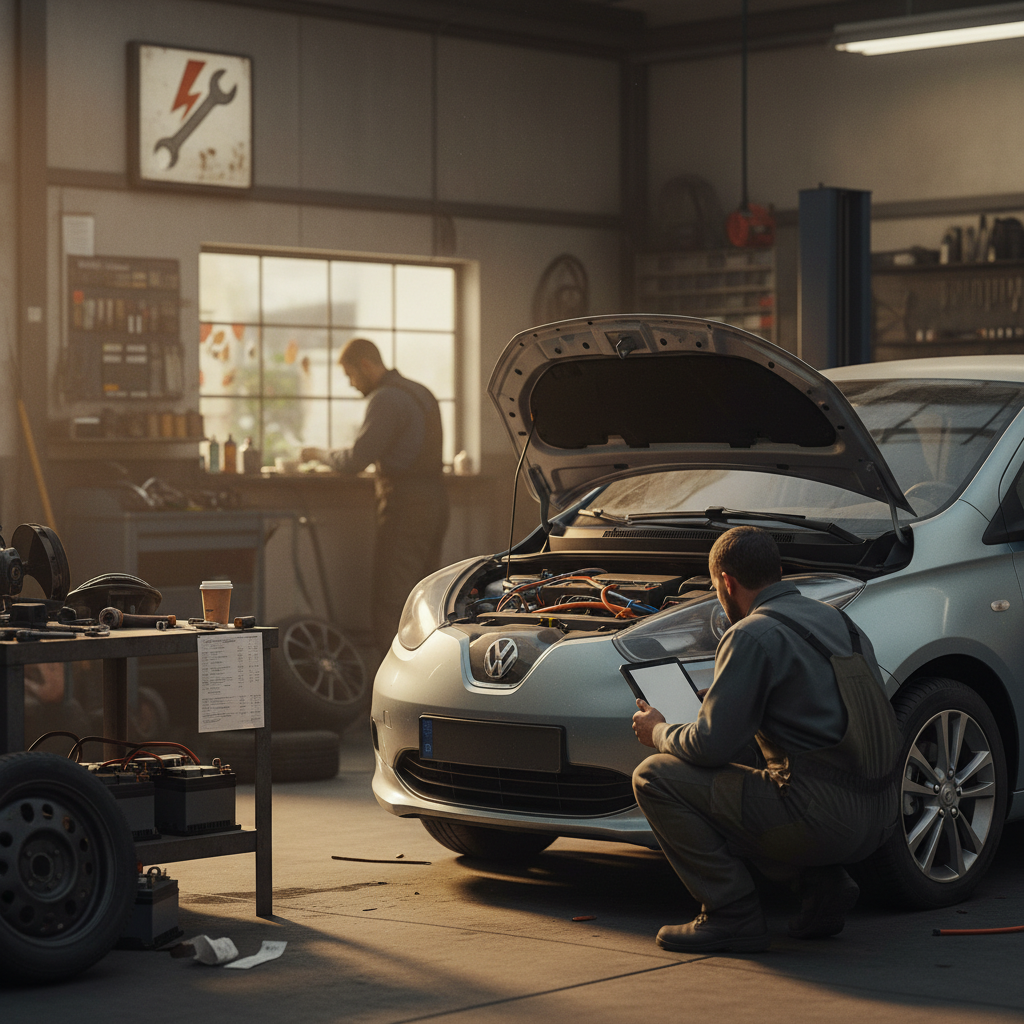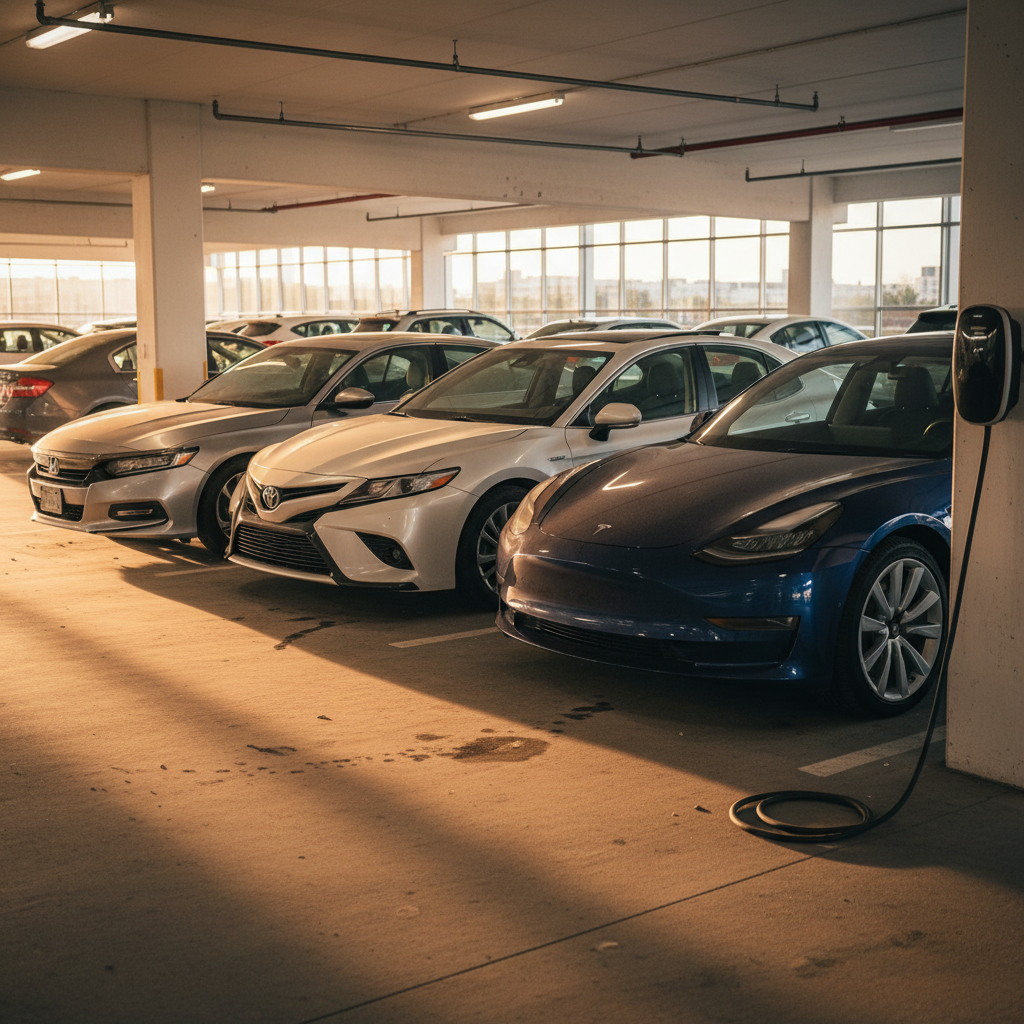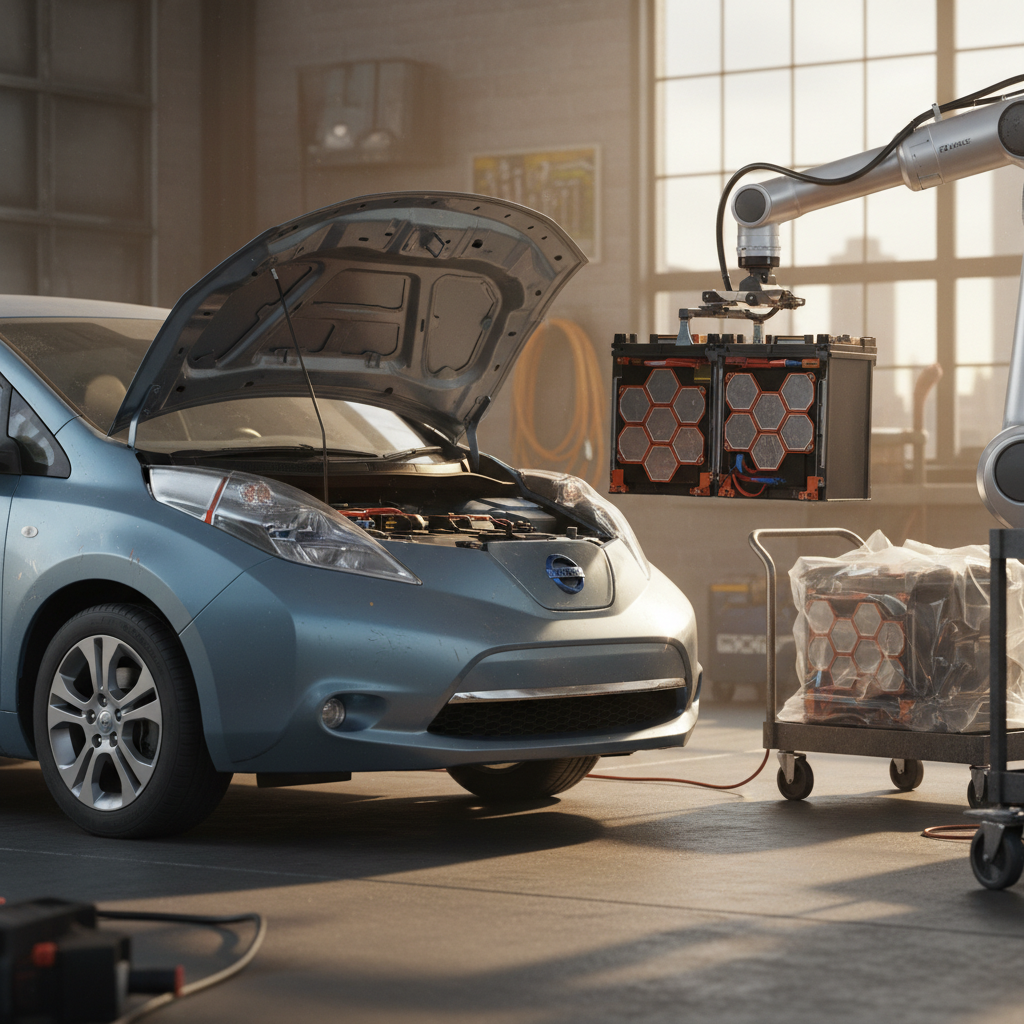Searches for “Hertz selling cars” have spiked over the past couple of years, and for good reason. Since early 2024, Hertz has been unloading a massive number of cars, including tens of thousands of electric vehicles (EVs) like used Tesla Model 3s and Model Ys, at relatively aggressive prices. If you’re shopping for a used EV in 2025, this matters directly to you, even if you never buy a car from Hertz.
Quick take
Why is Hertz selling so many cars right now?
Rental car companies always sell vehicles, after all, constantly rotating a fleet is core to their business model. What’s different now is the scale and mix of what Hertz is selling.
- Hertz over-bought EVs, especially Teslas, based on optimistic expectations for rental demand.
- Tesla’s repeated new-car price cuts in 2023–2024 hammered used values, making Hertz’s EVs depreciate faster than expected.
- Repair costs and downtime for EVs, particularly Teslas, ran higher than Hertz had modeled, cutting into profitability.
- Hertz then shifted back toward gasoline cars and launched an aggressive fleet “rotation,” selling off 30,000 EVs and many older gasoline vehicles by the end of 2024.
- In 2025, Hertz leaned even harder into retail sales (Hertz Car Sales and new partnerships) to maximize resale value versus auctioning cars off wholesale.
Important context
How Hertz Car Sales works when Hertz is selling cars
When people talk about “Hertz selling cars,” they’re usually talking about the company’s retail arm: Hertz Car Sales. This is the storefront for disposing of ex‑rental vehicles, including the EVs it’s been unloading since 2024.
What you actually get when you buy a Hertz vehicle
Most of Hertz’s EVs and gas cars are sold through a fairly standardized process.
No-haggle pricing
Hertz generally lists fixed prices. During the EV sell‑off, used Teslas were commonly advertised in the low‑ to mid‑$20,000s, sometimes undercutting traditional dealers by several thousand dollars.
Basic inspection & warranty
Hertz markets a multi‑point inspection (often 115‑point) and a limited powertrain warranty around 12 months/12,000 miles on "certified" vehicles, plus optional protection plans.
Retail, trade‑in & financing
You can trade in a vehicle, finance through Hertz’s partners, and in some states test‑drive a current rental for up to a few days and have rental charges waived if you buy.
Tip: Don’t be dazzled by stickers

The Hertz EV sell-off: What actually happened
To understand why “Hertz selling cars” became such a big story, it helps to look at the EV side of the fleet. Hertz had pitched itself as a leader in electrification, but the economics didn’t cooperate.
Hertz EV sell‑off: Key milestones
How a bold EV push turned into a large‑scale disposal program.
| Date | What Hertz Did | Why It Matters |
|---|---|---|
| Oct 2021 | Announced plans to buy 100,000 Teslas, later adding Polestar and GM EV commitments. | Made Hertz the highest‑profile EV adopter in the rental world. |
| Late 2023 | Publicly slowed EV additions, citing high repair costs and weaker‑than‑expected rental demand. | First sign that the EV economics weren’t penciling out. |
| Jan 2024 | Disclosed plans to sell about 20,000 EVs, roughly a third of its EV fleet. | Signaled a major retreat from the earlier EV bet; flooded the market with used Teslas. |
| Mid–late 2024 | Expanded the reduction to roughly 30,000 EVs total as part of a broader fleet refresh. | Locked in hundreds of millions in depreciation charges; pushed more affordable EVs into used channels. |
| 2025 | Shifted focus to a “Buy Right, Hold Right, Sell Right” strategy, with record retail vehicle sales and EV reductions largely complete. | EVs remain in the fleet, but now only in markets where the economics and infrastructure make sense. |
A quick timeline of Hertz’s EV strategy pivot.
“The larger impact of a rental giant’s EV fire sale isn’t just the cars themselves, it’s the signal it sends about costs, residual values, and how fast the used market needs to adapt.”
How Hertz selling EVs changed used EV prices
If you’re wondering whether it’s a good time to buy a used EV, the short answer is: Hertz helped make it better. Between falling new‑EV prices and fleet sell‑offs, used EVs, especially Teslas, have gotten dramatically cheaper since 2022.
What Hertz’s EV sell‑off did to the market
For shoppers, the upside is obvious: you can now buy a three‑year‑old EV for what a six‑year‑old gas car used to cost. The downside is more subtle: these cars fell in value so fast for a reason. High repair costs, patchy charging access in some regions, and uncertainty around long‑term battery health still spook many buyers.
Don’t confuse “cheap” with “good value”
Pros and cons of buying an ex‑Hertz electric vehicle
Pros of buying a Hertz EV
- Lower prices: Fleet‑sale Teslas and other EVs often list below comparable cars at traditional dealers.
- Clear usage profile: Mostly highway and airport‑to‑hotel miles, which can be easier on batteries than short‑hop city driving.
- Standardized inspections: Hertz’s in‑house process isn’t perfect, but it’s better than nothing, and cars must be sale‑ready by definition.
- Retail‑style experience: No auctions, some locations with test‑drive programs, and familiar financing/trade‑in options.
Cons of buying a Hertz EV
- Hard usage: Rental drivers don’t baby cars. Expect curb rash, cosmetic wear, and possibly rougher suspension/brakes.
- Unknown charging habits: You don’t know how often the battery sat at 100% or was DC fast‑charged, both of which affect long‑term health.
- Limited transparency: A basic inspection and AutoCheck/Carfax report won’t tell you everything about battery degradation.
- One‑size‑fits‑all pricing: No‑haggle prices can be good, but they also make it harder to negotiate around hidden needs like tires or alignment.
When a Hertz EV can be a smart buy
How to evaluate a used EV from Hertz, or anyone else
Whether you’re looking at a Hertz car, a local dealer trade‑in, or a listing on an EV marketplace like Recharged, the fundamentals of used EV shopping are the same. You’re not just buying a car, you’re buying a battery pack, software stack, and charging experience.
7 essential checks before buying a used EV
1. Start with the battery, not the paint
Cosmetic issues are cheap to fix; batteries aren’t. Look for range estimates at various states of charge, check for rapid drops, and compare to the original EPA range.
2. Get an independent battery health report
For vehicles on <strong>Recharged</strong>, every listing includes a <strong>Recharged Score Report</strong> with verified battery diagnostics. If you’re buying elsewhere, seek out an EV‑qualified shop or mobile diagnostic service to pull detailed pack data.
3. Review DC fast‑charging history
Frequent fast charging isn’t inherently bad, but repeated high‑power sessions on a hot pack can accelerate degradation. Ask what you can, and pay attention to how quickly the car charges during a test fast‑charge.
4. Inspect tires, brakes, and suspension closely
EVs are heavy and hit hard usage in rental service. Budget for tires and potential suspension work, especially on ex‑rental Teslas with lots of airport curb time.
5. Check software, connectivity, and app access
Make sure the car is on current software, that all driver‑assist features work, and that you’ll have access to the OEM app after purchase. Confirm no OTA‑locked features disappear when ownership changes.
6. Verify warranty coverage
Tesla and most OEMs offer 8‑year battery and drive‑unit warranties, typically with mileage caps. Confirm in writing what’s left. A three‑year‑old ex‑rental may still have 5+ years of battery coverage.
7. Compare total cost of ownership, not just price
Include home charging equipment, insurance, taxes/fees, and likely maintenance in your math. A slightly more expensive vehicle with verified battery health may be cheaper over five years.

Where Recharged fits in
Alternatives to buying from Hertz: When a marketplace makes more sense
Hertz is now just one of several big channels for used EVs. Before you jump on a Hertz Car Sales listing, it’s worth asking whether your profile fits better with a different route.
Three paths to a used EV in a post‑Hertz‑sell‑off market
Each comes with its own trade‑offs in price, selection, and peace of mind.
1. Rental fleet sellers (Hertz & peers)
Best for: Price‑sensitive buyers who are OK with ex‑rental history.
- Lots of similar cars (e.g., white/black Model 3s).
- No‑haggle pricing simplifies shopping.
- Limited insight into battery history and driver behavior.
2. Online EV marketplaces (like Recharged)
Best for: Buyers who value transparency and expert guidance.
- Curated EV inventory, not general used cars.
- Battery health reporting (Recharged Score) on every vehicle.
- Financing, trade‑in options, and nationwide delivery.
3. Traditional dealers & private sellers
Best for: Shoppers focused on a specific brand or local transaction.
- Can be hit‑or‑miss on EV expertise.
- Some franchise dealers have strong certified EV programs.
- Battery diagnostics and EV‑specific support vary widely.
Thinking about financing?
With used EV prices down, financing can put a newer, lower‑mileage car within reach without a massive cash outlay. Look beyond the monthly payment and compare total cost of ownership, including charging, insurance, and expected maintenance.
Through Recharged, you can pre‑qualify for EV financing online with no impact to your credit, then shop across vehicles knowing your budget is realistic.
When to walk away from a Hertz deal
- The price is only slightly better than a non‑rental with stronger documentation.
- The seller can’t provide any credible battery health data.
- Tires, brakes, and cosmetic damage will eat up your upfront savings.
- You’re uncomfortable with the idea of heavy rental use or uncertain charging history.
FAQ: Hertz selling cars and electric vehicles
Frequently asked questions about Hertz selling cars and EVs
Bottom line: What Hertz selling cars means for you in 2025
Hertz selling cars, especially the tens of thousands of EVs it pushed into the market, has accelerated a shift that was coming anyway: modern electric vehicles are finally priced like used cars, not tech gadgets. That’s good news for you, but only if you treat these deals with the same scrutiny you’d bring to any major purchase.
If you’re EV‑curious, 2025 is a favorable time to shop. You can use Hertz’s fleet sell‑off as a benchmark for what a high‑mileage ex‑rental should cost, then decide whether to accept that trade‑off, or pay a bit more for a vehicle with gentler history and verified battery health. Either way, focus on battery diagnostics, total cost of ownership, and transparent history, not just a low sticker price.



